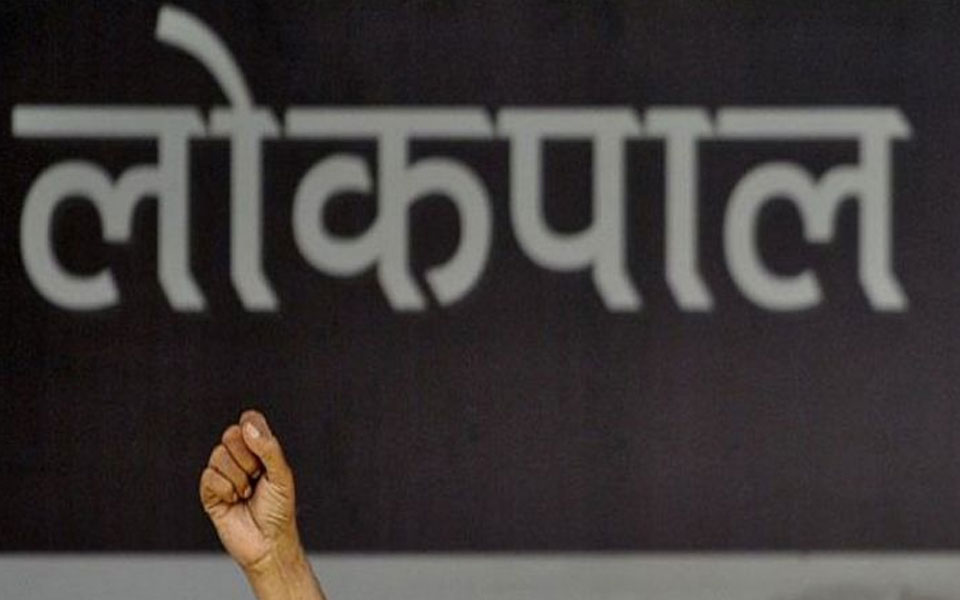One of the primary examples of how an agency can curb corruption if it is given an opportunity to work honestly and diligently is Karnataka Lokayukta. Our state Lokayukta commands special respect among such agencies existing all over India. It brought a CM to his knees and forced him to resign over illegal mining case. Many people’s representatives were sent to jail and lost their political clout finally. The whole country looked at Karnataka Lokayukta with awe.
When Lokayukta began its deep probe on politicians, all of them came together to finish it off. They have now clipped its wings and just allowed its existence to work without any hindrance. At a time when govt interferes with investigating agencies costing them their reputation and trust among people, the very first Lokayukta has been appointed in India. This was done after massive movement by people. Since LokPal can investigate the central ministers and leaders, the significance is naturally high. Even BJP had insisted on LokPal appointment when UPA was at the centre. But after clinching power, BJP fell silent over the matter.
Modi government didn’t pay heed to any pleas by Anna Hazare and many others insisting on the setting up of LokPal. But Modi government didn’t pay heed to that till the term was close to being over, and appointed a LokPal now when the govt is facing another term of elections. This shows the level of seriousness of the government regarding LokPal, because this has been done only with the lone purpose of pulling wool over people’s eyes. Corruption may not end with the appointment of LokPal. Considering the example of Karnataka, even this govt has not given total power to Lokayukta. Turning it into a toothless tiger is not a big deal of the politicians make up their minds on that.
For many years, we didn’t have justices to fill the positions of Lokayukta. With Santosh Hegde at the helm of affairs of this agency some time ago, today one wonders whether a Lokayukta even exists in the state. Country has seen how the CBI is suffering. The chief of this investigating agency was kicked out unconstitutionally because he wanted to investigate Rafale deal. Govt did not even pay heed to the SC’s directive regarding this issue. Finally, such a situation was created that the CBI chief had to resign and go out. Having used premier institutes to fulfil its political gains, the Modi government has ruined the credibility of such institutions.
Governments earlier would try to clandestinely try to control CBI and other such agencies, but Modi government has made no such cover-up efforts. Today CBI is full time puppet of the government. Hence the appointment of Lokpal is not a matter to rejoice too much. Because how does one expect LokPal to work independently when we have seen the fate of CBI? This would just be another agency established to add more jewels to their crowns.
LokPal can investigate people’s representatives too. It works as a watchdog of Democracy. If it takes up a case like Rafale, it’s not difficult to imagine how Modi would respond to it. LokPal alone cannot check corruption unless it gets full power. Else it would work like a bonded labour of central government. If this agency gets full power, the first bomb will fall on our political leaders. Why would they even make a mistake that can finish them?
Let the Truth be known. If you read VB and like VB, please be a VB Supporter and Help us deliver the Truth to one and all.
Kalaburagi: Four men have been arrested in Kalaburagi on charge of hacking a man with lethal weapons and pelting stones at him under the limits of Station Bazaar Police Station recently.
According to police sources, Anand Jalak Shinde (34), Ashitosh Jalak Shinde (30), Imran Mehboob Sheikh (28) and Sohaib Anwar Qureshi have been arrested. The men are accused of the brutal murder of Syed Mehboob, a resident of Station Bazaar Upper Line Hamalawadi in the city.
An FIR was filed by the Station Bazaar Police Station based on a complaint given by Syed Ismail, father of the deceased Syed Mehboob.
Following quick probe, the police team successfully arrested the suspects within 24 hours. The arrested men were produced in court and have been sent to judicial custody.
The City Police Commissionerate has appreciated in an official release the police team’s quick solving of the murder case and arrest of the four men accused of murdering Syed Mehboob.





